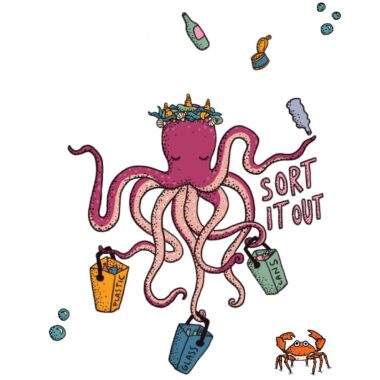Can the Law Save the Ocean? Watch Our Webinar on Legal Tools for Marine Protection
Catch up on our thought-provoking webinar exploring the legal challenges and opportunities in ocean conservation — from ghost farms to ocean rights.
Watch the Webinar: “Protecting the Ocean: Legal Tools, Gaps, and the Fight Against Marine Pollution”
If you’ve ever wondered how the law can protect the sea — or why sometimes it doesn’t — this webinar is for you. From the legal barriers we face during ocean cleanups to emerging frameworks that grant rights to nature, our panel of legal and environmental experts explored powerful questions and practical solutions.
🎥 Watch the full recording now
Why Legal Tools Matter for Marine Conservation
Marine conservation is often seen through the lens of science, cleanups, and activism. But behind every successful action — or frustrating obstacle — is a legal framework. Laws determine who is responsible for marine litter, who can access coastal areas, and what accountability mechanisms exist when pollution strikes.
During this session, we asked:
-
What tools do NGOs and lawyers have at their disposal today?
-
Where are the legal gaps we must address?
- How local and international legislations can align and implement each other
What You’ll Learn
The conversation moves across three levels — from practical clean-up experiences to legal cases and international advocacy:
🔹 Veronika Mikos (Director, Healthy Seas)
Explores the legal grey zones in cleaning up ghost farms — abandoned fish farms that pose a threat to ecosystems but fall outside clear legal responsibility.
🔹 Rogier Hörchner (Environmental Lawyer)
Presents a real case involving a plastic nurdles spill in the Netherlands, reflecting on what legal tools helped — and what was missing. Timely and relevant, especially with new EU legislation on plastic pollution.
🔹 Michelle Bender (Ocean Vision Legal)
Introduces the visionary but increasingly concrete concept of Ocean Rights — a legal approach that treats the ocean not as property, but as a living entity with rights. What would that mean for marine protection worldwide?
Healthy Seas and Legal Innovation: Why We’re Getting Involved
At Healthy Seas, our work often starts in the water — removing ghost nets, cleaning beaches, and partnering with local communities. But again and again, we’ve seen that marine conservation is not just about action — it’s about access, responsibility, and regulation.
That’s why we’re opening up the conversation on environmental law and working with partners to better understand the legal dimensions of our mission. From ghost gear to circular economy, the path to marine protection runs through courtrooms and policies too.
Didn’t Attend Live? No Problem.
Now you can catch up anytime.
🎥 Watch the webinar here below
💬 And if you have questions or comments, we’d love to hear them — reach out via email or social media.














